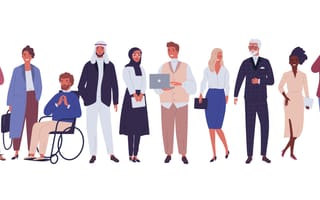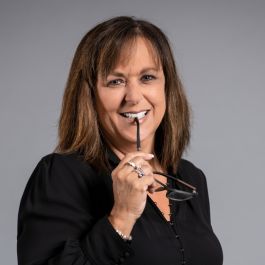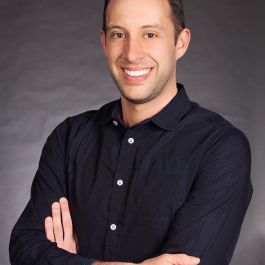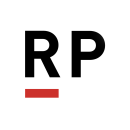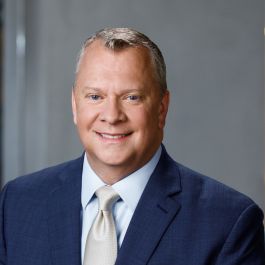Companies across the country are still falling short on diversity, equity and inclusion (DEI).
According to Built In’s 2021 State of DEI in Tech report, 87 percent of companies surveyed reported having no black leaders, 73 percent reported no Hispanic or Latino leaders, and 97 percent said they have no native or indigenous leaders. This lack of diversity in leadership often trickles down to workplace culture, creating an environment where some employees do not feel seen or heard.
Even worse, the same report found that 73 percent of all tech employees feel they have been discriminated against or treated unfairly due to their race, gender, sexual orientation, religion, or some other aspect of their identity. This percentage grows higher among marginalized groups.
While there is much still to be done when it comes to achieving real DEI in tech, some leaders are taking serious steps toward achieving that goal at their companies. We spoke with four local leaders who shared their DEI initiatives and how they are measuring success along the way.
The team at Intelligent Medical Objects is committed to improving healthcare, and their clinical terminology and insights solutions are used by more than 500,000 physicians across the country. CEO Ann Barnes recognizes that tension can be constructive, and in building an inclusive culture, seeks to turn human differences into stronger, more understanding relationships.
Diversity is important, but it’s only the first step. What actions does your team and leaders take to ensure all your employees have the support they need to thrive?
We value diversity because — among many things — it brings difference, and difference can create constructive tension. We at Intelligent Medical Objects (IMO) believe tension, when harnessed, leads to powerful outcomes like stronger relationships, better problem-solving, more innovation, heightened purpose and remarkably rewarding work.
None of this is possible without a more inclusive workplace, and this requires attention, intention and deliberation. At IMO, this important work starts with acknowledging that, as human beings, we are naturally biased and judgmental. While we will not tolerate words or actions that are hateful or discriminatory, we are not focused on fixing people who may not share our own perspectives, values and beliefs. We are committed to equipping ourselves with the tools, the skills, and the experiences that make us individually and collectively more inclusive.
We value diversity because — among many things — it brings difference, and difference can create constructive tension.’’
Of these actions, what has been most impactful in creating a workplace that supports diversity?
“Diversity and inclusion” is not a program for us. Rather, it’s an outcome of the experiences our people have every day. Those experiences — how we act, the words we use, and the communications and communities we build — must reinforce and clarify how important a more inclusive environment is for our collective success. This is behavioral for us. It’s grassroots, and it’s something to which we’re all accountable. Right now, our primary focus has been on establishing a common language around what diversity and inclusion is for IMO, and what it is not. That language forms guidance around how we can each reinforce and clarify a culture of inclusion.
How do you ensure that all employees are brought into your organization’s values of diversity, equity and inclusion?
We are hyper-focused on recruiting people to our business who are not only exceptional at what they do, but also embody our shared value of diversity and difference. This means we’re pursuing unconventional candidate pools, changing our selection process; even changing our expectations around which qualifications are imperative to the job. As an example, we are explicit in our job postings — and with candidates we reach out to directly — that even if they don’t feel like they possess the entire skillset aspired to in the job description, we want to talk with them nonetheless. All in all, it means we’re now hiring people who might not have even made it beyond the initial screening process in the past.
When building initiatives around diversity and inclusion, ActiveCampaign’s Director of DEI Anthony Papini understands the value of internal feedback. Among the tools he uses to reinforce DEI progress are employee satisfaction surveys, employee resource groups, and companywide visibility into the work his team is doing.
What actions does your team and leaders take to ensure all your employees have the support they need to thrive?
It is our belief that without equity, efforts to promote diversity and inclusion are admirable, but not sustainable. At ActiveCampaign, we seek out diverse perspectives and experiences to build an inclusive community. We embrace differences and celebrate them to cultivate inclusion. Our employee resource groups are integral to the business and help support our recruiting and retention efforts. Our ERG executive sponsors also promote companywide visibility of their work to further cultivate diversity, equity and inclusion at ActiveCampaign.
DEI training is also a priority and helps us ensure every ActiveCampaign employee recognizes their role in creating a culture of belonging and practices meaningful allyship. This is vital especially for our managers, who play an influential role in establishing psychological safety and a sense of acceptance, inclusion and identity for their teams. They are key to modeling and fostering belonging in their teams, and ultimately, in the workplace.
All employees have a part in cultivating diversity and inclusion.’’
Of these actions, what has been most impactful in creating a workplace that supports diversity?
From our most recent employee self identification results, 88 percent of ActiveCampaign employees report they feel like they belong, 90 percent believe they are consistently treated fairly, and 85 percent feel they can be their authentic selves at work. This is great to hear, but we won’t settle until everyone here feels a sense of belonging. The efforts that have had the most impact to date are our ERGs (ActivelyAsian, ActivelyBlack, ActivelyLatinx, ActivePride, DadsofAC, MomsofAC, and Women of AC), and our ActivePerspectives sessions, which provide an opportunity for ACers to hear from noted leaders, entertainers, philanthropists, authors, and other unique voices. We believe these resources have helped inspire greater dialogue around inclusion and diversity. In the future, our commitment is to begin to align our core business priorities with our DEI efforts and measure impact along those metrics.
How do you ensure that all employees are brought into your organization’s values of diversity, equity and inclusion?
ActiveCampaign’s values of diversity, equity and inclusion are centered on celebrating and embracing diverse perspectives and identities. All employees have a part in cultivating diversity and inclusion. We promote our core values and weave them into everything we do. We take pride in our employees and strive to be a workplace where everyone can bring their whole selves to work.
We understand diversity, equity and inclusion are the keys to unlocking true innovation in our community, and without the diversity of all of our employees’ experiences, perspectives and backgrounds, we would not be the ActiveCampaign we are today.
With more than 700 employees to consider, Rightpoint has the unique opportunity to build robust and wide-reaching DEI programs. Through mandatory DEI training, ERGs and regular educational events, Rightpoint is empowering its people to educate each other, share experiences and celebrate their diversity.
Companywide, mandatory training is critical to drive not only a diverse workplace but also an inclusive workplace.’’
What actions do your team and leaders take to ensure all your employees have the support they need to thrive?
We have ERGs that host speakers for the company and work on education and awareness. We also have company hosted listening sessions with different topics to highlight different experiences employees have with diversity at Rightpoint. We have rolled out companywide training around unconscious bias, microaggressions and other topics to keep the dialogue and education going.
Of these actions, what has been most impactful in creating a workplace that supports diversity?
The ERG teams are a critical part of our diversity impact at RP because it puts the passion to educate and drive change and awareness in the hands of our employees. Training is the other key initiative. Companywide, mandatory training is critical to drive not only a diverse workplace but also an inclusive workplace.
How do you ensure that all employees are brought into your organization’s values of diversity, equity and inclusion?
One of our core values at Rightpoint is diversity, which we measure as a strategic objective for the company so everyone is responsible for the success of diversity in their role, on their teams and companywide. My goal as the DEI lead at RP is to give a voice to all, especially underrepresented groups, so that everyone can share their experiences, learn how to be an ally to underrepresented groups, and drive important change for an inclusive environment at RP.
For Jason Cook at Revantage Corporate Services, a commitment to action means supporting a variety of programs that keep employees engaged in DEI initiatives. Educational panels, measurable DEI metrics and goals, and leadership DEI training are some of the tools his team has developed to support an inclusive culture.
What actions do your team and leaders take to ensure all your employees have the support they need to thrive?
At Revantage, we’re committed to action. We seek not only to talk the talk, but to embody the behaviors and create the environment of belonging and connection. Our companywide “All In” movement ensures that we are bold and intentional in acting on that commitment to our people and our communities.
Our leadership team is instrumental in driving these changes, but this is a team effort. From our CEO to our people and culture team, we have many people internally who are championing the All In movement.
We have a variety of programs and initiatives aimed at recruiting, engaging, and supporting our employees. We have a monthly celebration and recognition program, guest speakers and panels that employees can learn from, and an active diversity committee. Revantage has a mentorship program, affinity networks, and community circles that engage our professionals. We rolled out a robust inclusive learning and development program that all our professionals went through, and an inclusive leadership training program that all our leaders go through. We also evaluate our people systems and processes to ensure they are inclusive in action.
One of our company values is purely about diversity, and that ties directly into our performance management process.’’
Of these actions, what has been most impactful in creating a workplace that supports diversity?
We’ve assembled a DEI taskforce to workshop ideas, make sure different perspectives are represented, and hold us accountable for meeting our diversity goals. Each month, we put together resources that allow us to continuously learn about and appreciate each others’ differences, and share action items with our coworkers that help make us better allies.
One of the major initiatives of our DEI taskforce is to create spaces for reflection and conversation around the differences between us, where everyone is encouraged to attend, participate, learn and ask questions.
For example, this year we hosted a conversation around the importance of Juneteenth, from a historic perspective leading up to today, which allowed employees to ask many questions about how they can participate and better support our Black colleagues. This fall, we are planning a conversation with the head of a LGBT Resource Center to discuss how to share and respect people’s pronouns, as well as how to be more inclusive of, and allies to, our transgender and nonbinary coworkers.
How do you ensure that all employees are brought into your organization’s values of diversity, equity and inclusion?
We want to make sure we are recruiting equitably to begin with, which is why we make sure our job openings are placed with job boards, staffing agencies and universities focused on diverse talent.
From there, we make sure that our employees participate in inclusion training and have the ability to plug into our diversity committee and affinity groups. But beyond that, we make sure that employees know about our career development opportunities and inclusive talent management processes. Our Champion’s Network mentoring program, as well as our Women in Network resource group, help to foster connections that ensure employees feel supported in both their personal growth and in advancing their skills and careers.
This year we rolled out a competency model that defines what success looks like at each level of the organization. The competencies include measures of inclusive behaviors and accountability for ensuring diversity is brought in, celebrated and engaged. One of our company values is purely about diversity, and that ties directly into our performance management process.
